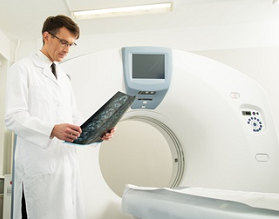This year is the final reporting period under the now-familiar Physicians Quality Reporting System (PQRS). The Centers for Medicare and Medicaid Services (CMS) just announced proposed regulations that will govern new Medicare quality-reporting rules known as the Quality Payment Program (QPP) beginning in 2017. This new system, which was enacted as part of the Medicare Access and CHIP Reauthorization Act of 2015 (MACRA), comprises both the Merit-based Incentive Payment System (MIPS) and Alternative Payment Models (APMs). The final rules will be published later this year, but physicians can begin now to explore whether they want to join an APM or adapt to the MIPS reporting requirements.
Medicare Quality Reporting Rules are Changing on May 5, 2016
Categories: radiology reimbursement, medicare reimbursement, PQRS, MIPS, MACRA, Quality Payment Program
 The Centers for Medicare and Medicaid Services (CMS) issued two reminders recently that physicians must be working constantly to maintain compliance with the Medicare quality reporting programs. The current regulations call for adjustment of the fees paid to physicians for services to Medicare patients based on annual measurement of the physicians’ performance under quality and cost metrics. Radiologists must focus on their quality measures because the system assigns them to an Average Cost pool by default since they have little or no control over this factor.
The Centers for Medicare and Medicaid Services (CMS) issued two reminders recently that physicians must be working constantly to maintain compliance with the Medicare quality reporting programs. The current regulations call for adjustment of the fees paid to physicians for services to Medicare patients based on annual measurement of the physicians’ performance under quality and cost metrics. Radiologists must focus on their quality measures because the system assigns them to an Average Cost pool by default since they have little or no control over this factor.
Categories: radiology reimbursement, medicare reimbursement, PQRS
At Healthcare Administrative Partners, our mission is to educate practices on CMS Quality Programs and provide a path to optimized performance even in the most challenging markets. This is the final installment of our series of articles, “A Program for Successful PQRS Participation for Radiology Practices,” which was specifically designed to help you maximize reimbursement and reduce compliance issues under the Physician Quality Reporting System (PQRS). So far we’ve covered...
Categories: radiology reimbursement, medicare reimbursement, value modifier, PQRS, MIPS, MACRA
CMS Reflects on the Successful Implementation of ICD-10 on March 4, 2016
The Acting Administrator of the Centers for Medicare and Medicaid Services (CMS), Andy Slavitt, recently posted this blog article that describes the successful transition to ICD-10 diagnosis code reporting on October 1, 2015. In it, Slavitt writes, “For thousands of physicians and other clinicians around the country, the change to ICD-10 was a big undertaking, requiring time, planning and a period of adjustment. But on October 1, proper execution and good implementation made all the difference.”
Categories: radiology reimbursement, radiology coding, icd-10
Medicare Reimbursement for Lung Cancer Screening Using Low-Dose CT on February 12, 2016
Nearly a year passed between the announcement by the Centers for Medicare and Medicaid Services (CMS) that Medicare coverage would be available for low-dose computed tomography (LDCT) lung cancer screening and issuance of the regulations that would allow claims to be submitted. The patient eligibility requirements and the details for performing the exam were announced in February 2015 but it took the rest of the year before the billing and reimbursement particulars were known. Finally, Medicare will pay for LDCT procedures performed on and after February 5, 2015 beginning in 2016. A 43-page decision memo from CMS defines in great detail the criteria that must be met by patients, physicians, and imaging centers in order for the scans to be eligible for reimbursement. Here is a practical summary of the rules for performing and billing these screening services.
Categories: radiology reimbursement, medicare reimbursement, low dose CT
A Program for Successful PQRS Participation for Radiology Practices: Step 6 on February 9, 2016
Now that 2016 is in full-swing, the new realities of our changing healthcare economy are becoming very apparent to providers across all specialties, and radiology is no exception. As physician practice leaders, assessing how to maintain and grow your practice as the transition to value-based compensation continues is not an easy task. At Healthcare Administrative Partners, our mission is to educate practices on these matters and provide a path to optimized performance even in the most challenging markets. Our continuing series of articles, “A Program for Successful PQRS Participation for Radiology Practices,” is specifically designed to help you maximize reimbursement and reduce compliance issues under the Physician Quality Reporting System (PQRS). So far we’ve covered:
Categories: radiology reimbursement, medicare reimbursement, PQRS
CMS Quality Initiatives – Reporting by Radiology Practices in 2016 and Beyond on February 5, 2016
Congress has mandated that the Centers for Medicare and Medicaid Services (CMS) move forward with quality-based programs and associated payment models. In 2015, the Medicare Access and CHIP Reauthorization Act (MACRA) was signed into law, expanding the Medicare quality-reporting programs that began as a voluntary incentive ten years ago with the original Physician Quality Reporting Initiative (PQRI). Today it is more important than ever to embrace and maximize success in these programs and be ready to move ahead as they evolve.
Categories: radiology reimbursement, cms, PQRS, MIPS, MACRA
What Radiology Practices Need to Know About Reporting the New CT Modifier on January 7, 2016
One of the new coding requirements imposed by Medicare for 2016 is that practices attach a billing modifier to CT procedures performed with older CT equipment that does not meet the standards of NEMA XR-29-2013. Medicare’s payment for services billed with the new “CT” modifier will be reduced by 5% of the technical component. Both the Radiology Business Management Association (RBMA) and the American College of Radiology (ACR) have posted blog articles this week about the new requirements.
Categories: radiology reimbursement, radiology coding, CT imaging
Regulatory Changes Affecting Radiology and Radiation Oncology Reimbursement in 2016 on December 21, 2015
A variety of federal legislative activities during 2014 and 2015 contained rulings that will begin to affect Medicare reimbursement to physicians next year. Most recently, The Centers for Medicare and Medicaid Services (CMS) issued its Medicare Physician Fee Schedule (MPFS) Final Rule for 2016 that will govern its payments to physicians. The overall impact of the final MPFS changes to radiology and radiation oncology practices compared with the proposed changes issued earlier this year, is estimated by CMS as follows:
Categories: radiology reimbursement, radiation oncology reimbursement, MPFS, value modifier, PQRS, MIPS, MACRA
Documentation Best Practices for Imaging Guidance in Interventional Radiology Procedures on December 8, 2015
In this blog article that continues our series on how to optimize radiology documentation for maximum reimbursement potential, we address the two most important questions specific to imaging guidance in interventional radiology. Imaging guidance is more and more frequently bundled with the primary interventional procedure, especially with the new CPT[i] codes proposed for 2016. It is, however, still separately billable in certain cases. Regardless of whether it is bundled or not, the radiologist’s documentation for the procedure requires certain elements that thoroughly describe the guidance methods and results. Here are the answers to the two most important questions for your radiology practice to consider.
Categories: radiology reimbursement, radiology documentation, interventional radiology, imaging guidance












